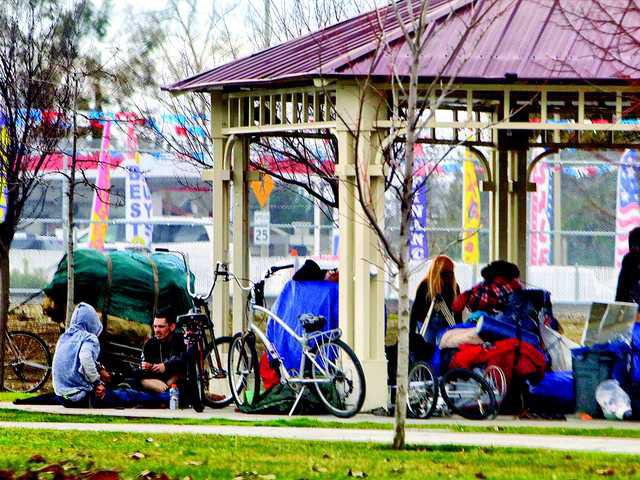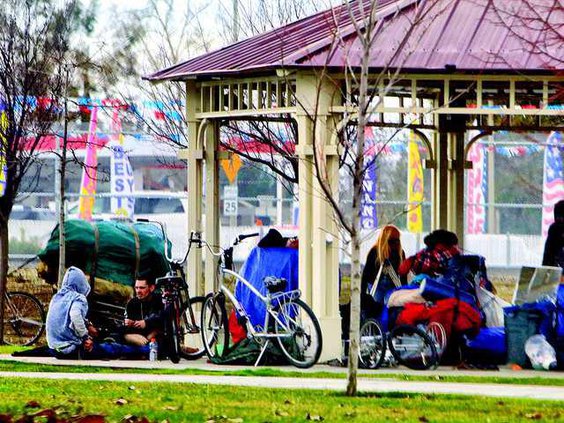Manteca’s decision to commit community resource officers to deal with the homeless may end up making inroads into an equally perplexing problem — substance abuse.
Manteca Police Chief Nick Obligacion is providing the City Council when they meet tonight at 7 o’clock with an update on the most recent homeless summit since elected leaders in August 2014 stepped up the city’s effort to deal with homeless issues.
Part of his report includes sharing how CRO Mike Kelly is working with the San Joaquin County Superior court drug program to try and bring a drug court to Manteca.
While there are homeless with drug issues not all quality of life issues Manteca is dealing with that are tied to drug abuse involve homeless individuals.
Drug court is designed for non-violent offenders to receive treatment and avoid prison sentences and fines providing they successfully complete a year-long program.
Nationally, drug courts are viewed as the No.1 cost-effective intervention program for drug abusers. The success rate nationally for completion of one-year drug court programs was pegged at almost 60 percent in 2014. That compares to roughly 36 percent than for traditional probation. Federal justice date shows they have a 1.5 times better chance of not re-offending than through other programs.
Drug court has been part of the San Joaquin County judicial landscape since 1995.
According to the county website, the Drug Court “program is successful because it employs a variety of methods to intervene in the participant’s addiction, from incentives for progress in the program, to sanctions for violations of the Drug Court contract which participants sign upon entering the program. Participants are intensely monitored by the Court and external program caseworkers. Drug Court participants are randomly and frequently tested to assure compliance with program standards. In the event of a relapse, intensive counseling plus a variety of sanctions may result, from extension of the participant’s term in the program to termination and imposition of the original sentence. Successful graduates of the one-year program benefit from permanently stayed sentences and fines.”
The Drug Court relies on a strong working relationship with community agencies such as Kaiser Permanente, other health and substance abuse programs, and the Office of Substance Abuse among others.
Tonight’s report regarding Manteca’s homeless population, quality of life issues surrounding city parks, and recent homeless summits includes the fact Kelly has placed 63 individuals into treatment, housing, or reunited them with family during the last seven months. Kelly also has worked to coordinate outreach services available to the homeless including field mobile showers. It also includes twice-a-month efforts where representatives of various resource agencies go around the city as a group contacting the homeless.
A second CRO officer will join the Manteca Police Department by the end of this month
Those involved with the homeless summits have made the following conclusions:
uThe homeless population is primarily divided into two groups: Those in need of assistance with mental health issues, substance abuse issues, financial issues, and housing issues. The other are those who choose the lifestyle of living on the streets and are involved in some type of criminal activity.
uHomelessness cannot be solved by arrest and/or law change alone.
uThe city, community groups along with county, state and federal resources must work as a team to address the homeless/transient issue.
uResources must not be duplicated to be efficient with single points of contact for each resource type.
uCommunity buy-in is critical for what is a “Hand Up” versus a “Hand Out” effort. That means people need to support the non-profit agencies working with the homeless in lieu of assisting panhandlers.
uThe homeless effort needs to involve education, financial assistance, housing, legal assistance, and outreach.
The homeless summit meetings typically involve ministerial groups that have homeless services as well representatives of county, state, and federal programs.
To contact Dennis Wyatt, email dwyatt@mantecabulletin.com
A DRUG COURT IN MANTECA?
Citys holistic approach to homeless involves bringing court to Manteca





